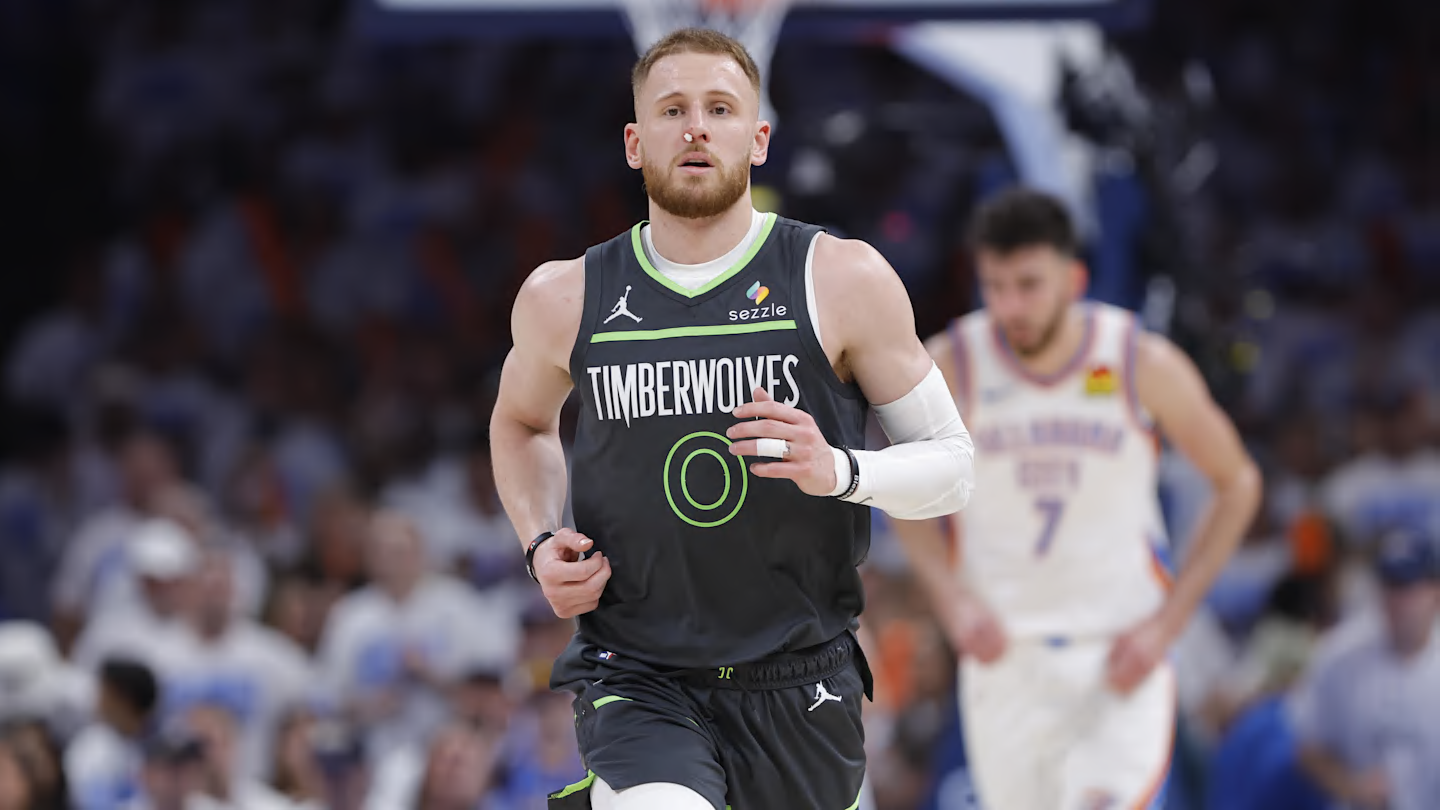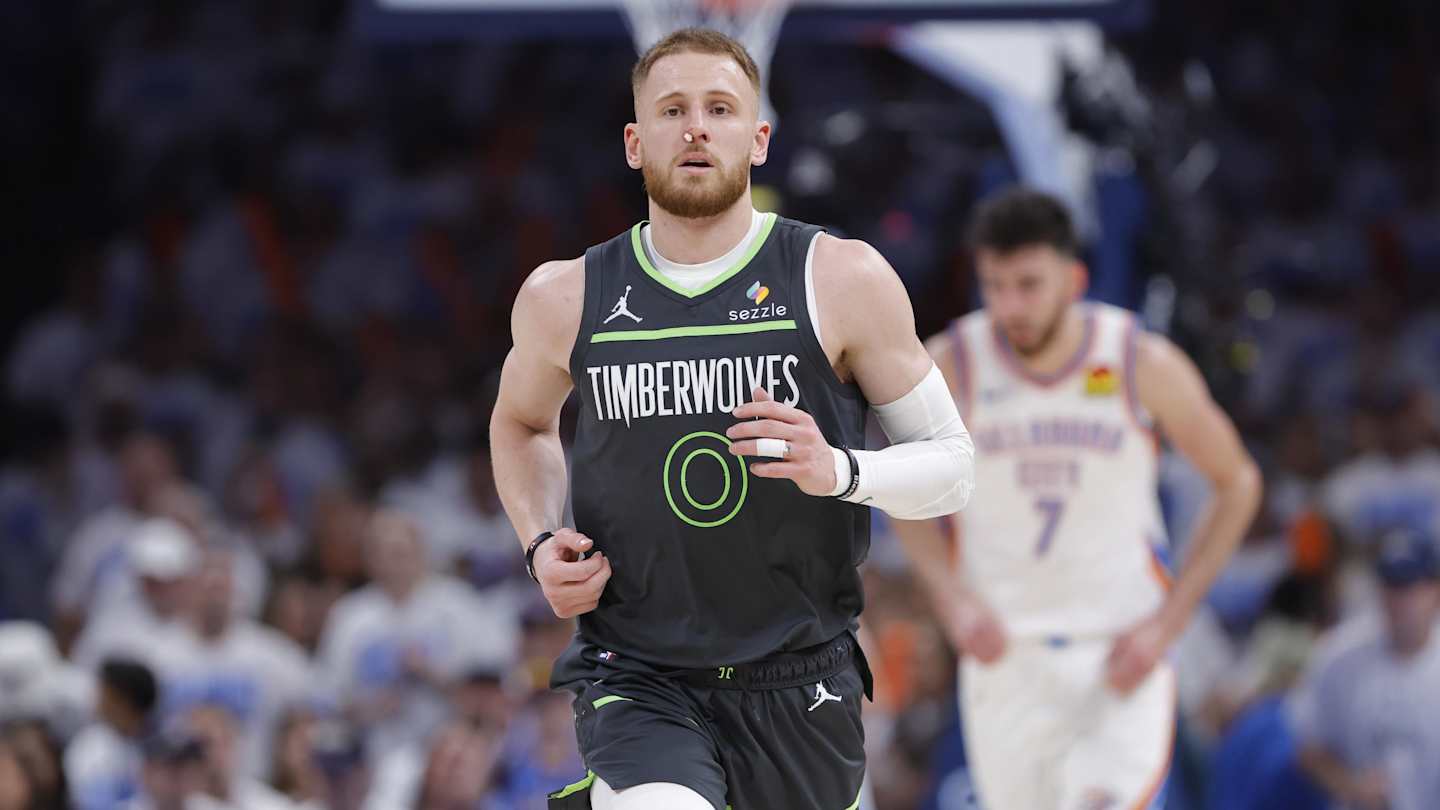
The Critical Role of a Point Guard
In the high-stakes world of professional basketball, the point guard position often serves as the engine that drives a team’s success. The ability to orchestrate an offense, make smart decisions under pressure, and facilitate scoring opportunities for teammates is crucial. The Minnesota Timberwolves, currently navigating the Western Conference Finals, are facing a glaring issue in this regard: a lack of reliable options at the point guard position beyond veteran Mike Conley. This deficiency has been brought into sharp focus during their series against the Oklahoma City Thunder, highlighting the need for a capable ball-handler who can steer the ship, minimize turnovers, and create scoring chances. The Timberwolves’ performance with and without Conley on the court underscores the magnitude of his impact and the urgent need for a solution.
Conley’s Impact: A Study in Contrasts
Mike Conley, despite not putting up eye-popping numbers in the series, has been a stabilizing force for the Timberwolves. The statistics speak volumes: with Conley on the floor, the Timberwolves boast a positive point differential. Conversely, when he’s off the court, the team struggles significantly. Conley’s presence brings poise and intelligence, qualities essential for navigating the aggressive and finely-tuned defense of the Thunder. His ability to keep the offense organized and avoid costly turnovers is invaluable. This contrasts sharply with the struggles of the Timberwolves’ backup point guard, Donte DiVincenzo, whose performance has been riddled with turnovers and inefficient shooting, leading to a negative impact on the team’s overall performance. These drastic swings in team performance, depending on who is handling the ball, illustrate the critical importance of a dependable point guard to the Timberwolves’ chances of success.
Unpacking the Backup Point Guard Struggles
The situation with Donte DiVincenzo, the Timberwolves’ de facto backup point guard, is a clear indicator of the team’s point guard woes. DiVincenzo, primarily a shooting guard, has struggled mightily in the series. His scoring has been inefficient, and he has committed as many turnovers as he has assists. The team’s point differential with DiVincenzo on the court paints a grim picture. However, the blame cannot be solely placed on DiVincenzo’s shoulders. Other key players like Julius Randle, Naz Reid, and Rudy Gobert have also underperformed, contributing to the team’s overall struggles. Nevertheless, the lack of a reliable backup ball-handler exposes a critical weakness in the Timberwolves’ roster. This weakness has allowed the Thunder to exploit and disrupt the Timberwolves’ offensive flow. What can the team do to resolve this key issue?
The Dillingham Development Plan
The key may lie in the development of Rob Dillingham, the eighth overall pick in last year’s NBA draft. Dillingham showed flashes of potential during his rookie season but hasn’t been a consistent part of the rotation. The Timberwolves’ coaching staff hasn’t yet deemed him ready for a significant role on a contending team. The current series, however, underscores the importance of his development for the team’s future. If Dillingham can evolve into a playable backup point guard next year, he could relieve pressure on Conley, whose career is winding down. This would also allow DiVincenzo to play in a more natural off-ball role. Additionally, it would ease the creation load on Anthony Edwards. The long-term vision for Dillingham includes replacing Conley in the starting lineup and growing alongside Edwards and Jaden McDaniels. The team’s long-term success might depend on the growth of the young guard.
Future Draft Options for the Timberwolves
Given Conley’s age and Dillingham’s uncertain development, the Timberwolves may want to consider drafting another developmental point guard in the upcoming draft. This would provide the team with more depth and flexibility at the position. Even if other reserve guards like Bones Hyland and Tristen Newton show promise, adding another developmental option could prove beneficial. The team’s front office must weigh the risks and rewards of investing in another young point guard. They need to consider how this could benefit the team in the long term. With the current series highlighting their need for a reliable ball-handler, the Timberwolves must make decisions that prioritize their long-term success. The team needs to carefully assess its needs and draft accordingly.
Conclusion: Addressing the Point Guard Deficiency
The Minnesota Timberwolves are facing a critical juncture in their quest for an NBA title. The series against the Oklahoma City Thunder has illuminated a clear need for a dependable point guard. Whether it’s through Dillingham’s development or a strategic move in the upcoming draft, the Timberwolves must find a solution to this deficiency. The team’s ability to address this issue will significantly impact their ability to compete for championships in the coming years. The path forward requires a combination of player development, strategic roster decisions, and a commitment to building a team capable of navigating the rigors of the NBA playoffs. The Timberwolves’ front office and coaching staff face a pivotal offseason to address their point guard conundrum.
